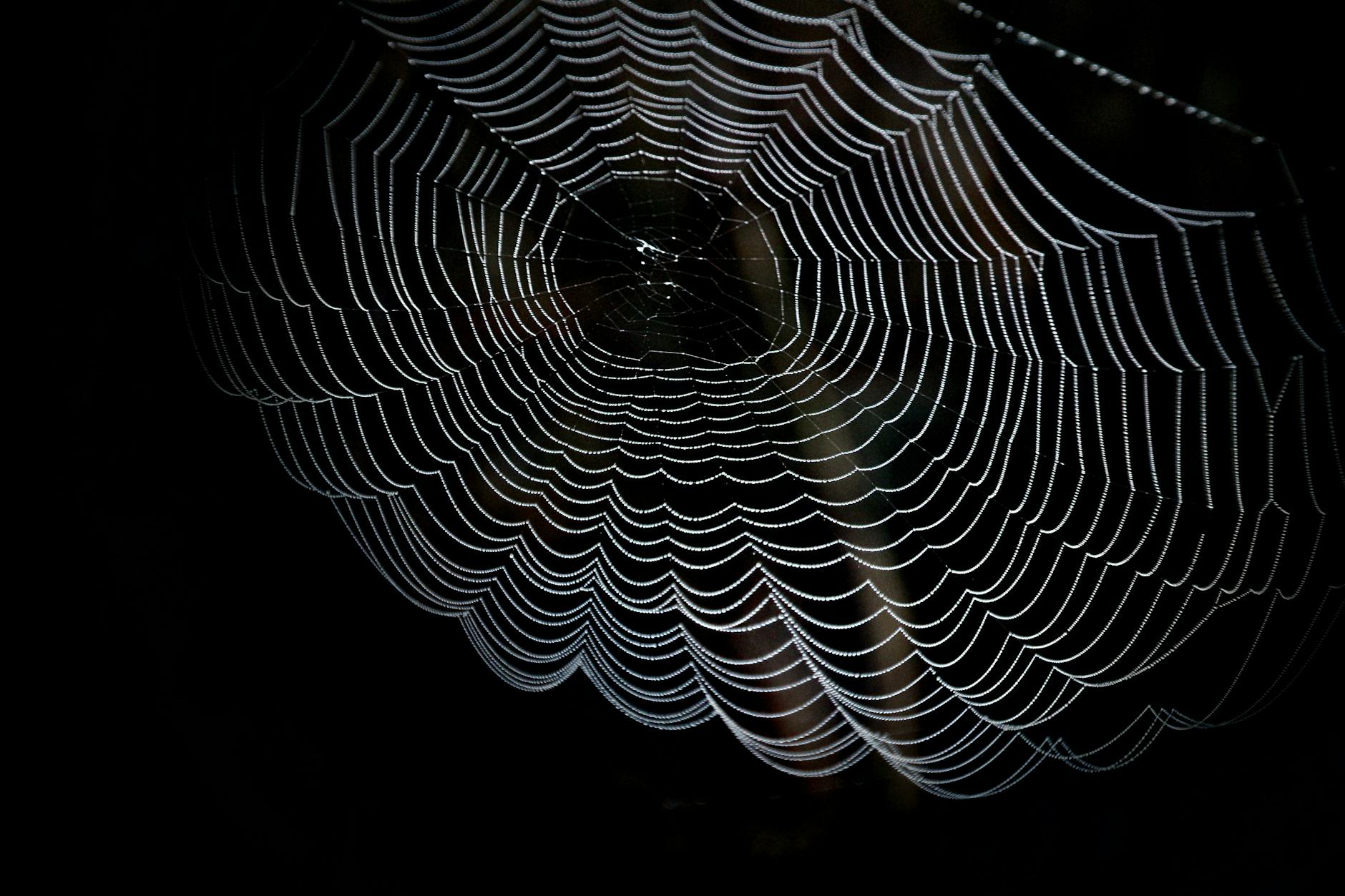As a six-year-old girl, I was an untamed spirit, a spark plug of curiosity with an innocent heart. My world was full of wonder, and my fingers had just began to trace the intricacies of its design. While I don’t recall how I came to have a copy of the classic story called “Charlotte’s Web,” I distinctly remember the moment I first held the book in my hands. I remember clutching the book, my fingers wrapped around its spine like a delicate embrace. The smell of ink and parchment was intoxicating.
The book’s cover had an illustration of a pig and a spider — a curious combination that instantly intrigued me. Little did I realize, though, that this first journey with Charlotte and Wilbur would forever alter the course of my life. The words within cast a spell that transported me from my little blue bedroom into the vibrant barnyard of Zuckerman’s farm. Charlotte and Wilbur became more than just characters to me; they were my companions, their voices echoing in within my imagination for years to come.
Charlotte, the wise and nurturing spider, was a figure of great intellect and emotional intelligence within the barnyard microcosm. Her words of wisdom wrapped around me like a comforting blanket, spinning intricate truths that I could tuck away into the folds of my mind. With each message she wove into her web, a new understanding was spun within me. I admired her selflessness, her devotion to her best friend, and her ability to change the world with a few simple words.
Wilbur, the radiant pig, was a symbol of vulnerability. His plight as a farm animal likely doomed to the slaughter stirred up a wellspring of empathy within my young heart. Being the runt of his litter, which typically spelled a quick end, a young girl named Fern took pity on him and saved his life. He probably wouldn’t have lived under any other circumstances, which makes him singularly special.
Through Wilbur’s eyes, I began to see the world in a different light, one that spotlighted the beauty in simplicity and the extraordinary in the ordinary. I found myself welling up with tears as he experienced the throes of loneliness and the joy of friendship. Wilbur’s innocence mirrored my own, as did his wide-eyed exploration of the world. I myself felt like a runt of the litter in my own world, undersized and misunderstood. Little did I know that Wilbur and I had more in common than I first recognized. It would be finding truth through seemingly simple words that would save my life, too.
The friendships in this tale testify to the transformative power and magic of unlikely alliances. It starts with the motherly attention Fern showers Wilbur with in the story’s open. Later, I’d come to appreciate the unexpected bond that Charlotte and Wilbur share, and finally, the kinship Wilbur shares with Charlotte’s daughters. This story taught me the valuable lesson that bonds are not dictated by appearances but by the kindness and understanding shared between hearts.
How the World of “Charlotte’s Web” Fueled My Imagination
The world of “Charlotte’s Web” was rich and immersive. I was drawn in by the eloquent simplicity of White’s prose, his vivid characters, and the profound empathy he invoked for his animal protagonists. I spent hours lost in their world, my heart swelling with triumph and breaking with sorrow in equal measure as I reread the classic tale.
I cried when Charlotte died, with a lump in my throat and tears staining the pages. Yet I soon felt a strange sense of joy knowing that she lived on in her children. It was a poignant lesson about the circle of life, friendship, and sacrifice, So, E.B. White became my first literary hero.
But, I couldn’t get enough of that first story. Surprisingly, was aware of his second children’s novel “Stuart Little” as a child, but didn’t actually read it until adulthood. I didn’t enjoy it all that much. Perhaps, that’s because the set-up felt so much more forced and the ending was somber and frustratingly open-ended. I also didn’t read his third and final children’s novel, “The Trumpet of the Swan,” until adulthood, but I thoroughly enjoyed it once I did.
Still, for me, “Charlotte’s Web” was the epitome of literary perfection, aimed at children or not. I still feel that way as I approach middle age. When I read it for the first time, “Charlotte’s Web” immediately inspired some curious and unusual fiction to emerge from my own pen. The classic tale would continue to influence my burning desire to pen novels with the same impact that tale of a spider and pig once had on me.
“Charlotte’s Web” was my bridge to understanding compassion, friendship, loss, and the bittersweet beauty of life. It influenced my worldview, shaping me into a woman who cherishes the simple things. I continue to find magic in the mundane, and today I believe more than ever in the transformative power of words. For these sparks of inspiration, the six-year-old girl within me who fell in love with a radiant pig and a wise spider will forever be grateful to the man who breathed life into them.
As I grew older, I became intensely curious to know the hands that had crafted this masterpiece. Who was this E.B. White, the man who spun such a heartwarming yarn that reached into the core of my being? I needed to know the mind behind the magic, the creator of my beloved imaginary companions.
The Genesis of My Continuing Love Affair With the Essay Art Form
Delving into the life of E.B. White, I discovered a man who saw the world through the lens of beauty and simplicity. In his children’s literature, White translated his observations into tales that sparked joy and wisdom in young hearts. His capacity to capture the innocence of youth, the complexity of life, and the power of friendship within the pages of a children’s book was nothing short of a miracle.
But, in time I’d discover what made up most of White’s career, his prolific work in the form of essays. So, while his most famous children’s book would point me in a literary direction, it was E.B. White’s other work that had an even more profound impact on my life’s direction.
I remember borrowing a collection of his essays at a local library. The pages were yellowed with age, the edges soft and worn. Yet the words printed on them held a world that was as fresh and vibrant as the day they were written. Each essay was a window into White’s world, a reflection of his thoughts and perspectives living within a now forgotten age.
Even being from an even then bygone era, White’s prose was a blend of wisdom and wit, with each line a testament to his mastery of the language. I savored his words, reading and re-reading his essays. Each time I’d find a new layer of meaning and a new insight to ponder. I’d steal phrases that caught my heartstrings and place them into my notebook, hoping they would stoke the creative fires whenever my coals were running cold.
Inspired by White, I began to pen my own thoughts in as eloquent a way as I could with quite limited vocabulary. My first essays were clumsy attempts at emulating his style, clearly my youthful enthusiasm often overriding my skill. But with time, I grew more confident, my voice clearer, and my thoughts presented more coherently. I also read a lot of dictionaries to find new words, scouring encyclopedias to find more topics to write about.
Today, as I walk the path of an essayist, I strive to carry forward the legacy of E.B. White. I aim to infuse my writing with the same depth of thought, the same sensitivity, and the same love for language that he shared through his collective works. As I have discovered even more of White’s essays, I still find myself in awe of the depth and breadth of his prose and subject matter.
I made a pledge in my youth to become White’s counterpart in the twenty first century, and the next Great American Essayist. Sure, I’ll probably never enjoy so grand a title, as even White never quite reached that pinnacle of popularity with his essays. But, when it comes to essayists, I’ve never found a single one that inspires me the way that White does. Perhaps I’m biased, due to him being the creator of Charlotte and Wilbur. But without him, I would likely never have pursued essay writing to this degree.
One of my future writing goals is to review many of his essays, focusing on both the ideas still applicable today. My hope is that by sharing what I’ve learned from him, you may benefit from his wisdom, too. I highly suggest you find a few of his essays to read, as back in his day, that was what peak writing looked like. I highly doubt I’ll ever reach anywhere near the notoriety he did in my own time, but that’s not important to me — it will always be about sharing ideas and wisdom from across the years.
~ Amelia Desertsong



